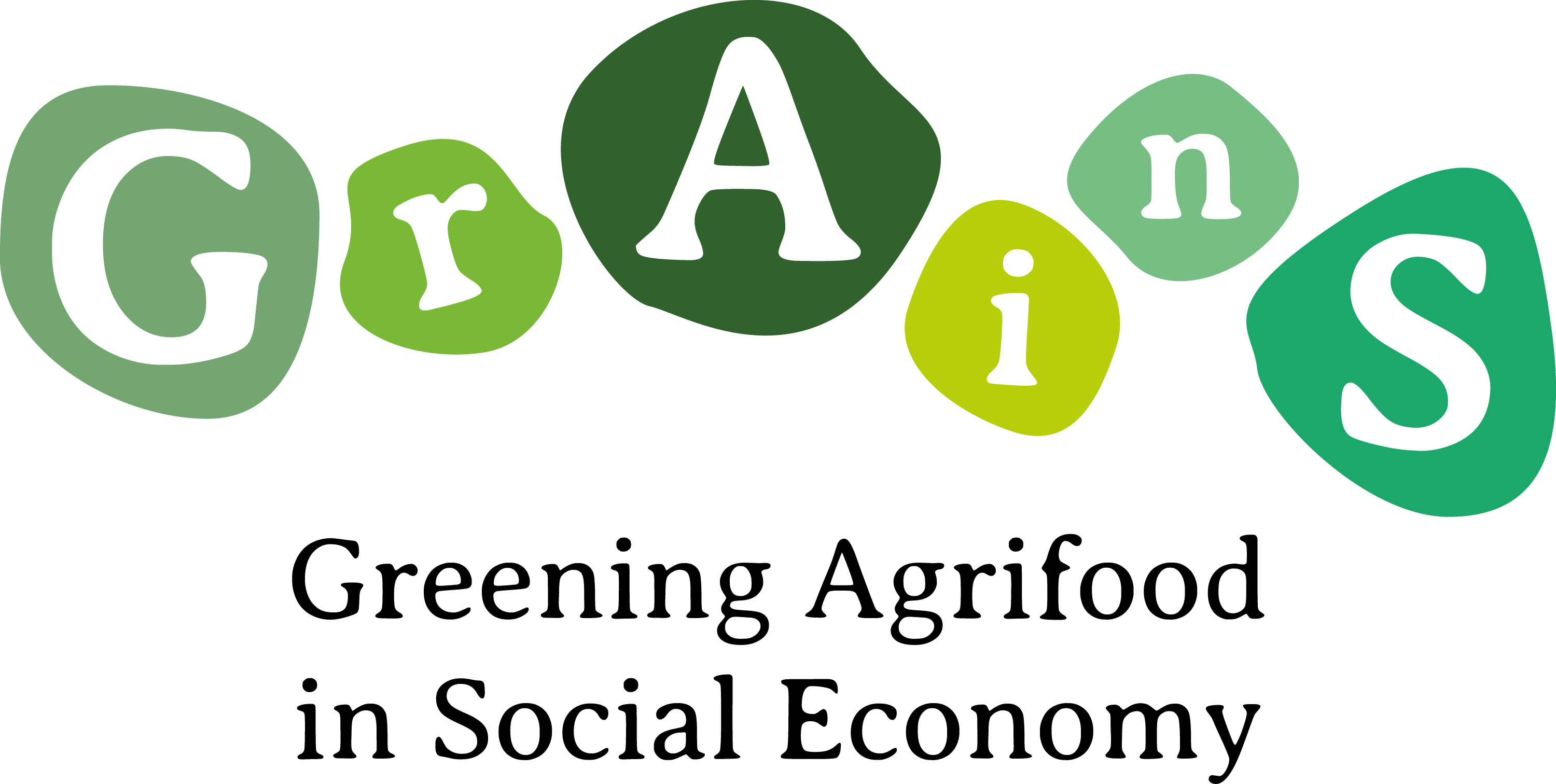
GRAINS
Learn more at GRAINS official website.
WHAT IS THE CONTEXT?
The agri-food sector is both impacted by and contributes to climate change. It can help mitigate climate change by adopting several solutions, including sustainable farming practices, reducing food loss and waste, developing eco-packaging solutions, promoting local markets and sustainable diets and investing in innovative technology to reduce carbon energy and water footprint while ensuring biodiversity. Moreover, faced with growing global demand and resources competition, the EU’s agri-food activities need to be seen in a broader context, linked to energy, biodiversity, health diets and food security.
This sector is vital in achieving the European Green Deal and is supported by the Common Agricultural Policy (CAP). In the last years, accelerating the twin transition has become a transversal priority for the European Union, and the social economy plays a crucial role in this twin transition by helping to build a greener and more equitable agrifood sector, promoting inclusive and sustainable models.
In 2022, the European Commission published the Twin Transition Pathway for the proximity and social economy ecosystem. Many actors in the social economy have already started developing alternative food systems focusing on greening and sustainable solutions. Social economy SMEs in the agri-food sector can promote sustainability and fairness by reducing emissions, offering affordable, high-quality food, and creating jobs. Agri-social enterprises can respond to both social and environmental needs, by placing themselves in all the steps of the production and consumption chain and by promoting circular and local practices. However, these SMEs face challenges like skills gaps, policy limitations, and funding constraints.
WHAT ARE THE PROJECT OBJECTIVES?
GRAINS project aims to address these challenges by providing training on sustainable practices and on how to reduce their environmental footprint. GRAINS supports capacity building, knowledge transfer, and cooperation among social economy SMEs in the agri-food sector.
In the first year, the capacity-building activities will focus on business needs and innovation. The second year, the activities will refer to specific operations of the agri-food supply chain (e.g. eco-packaging, local markets, etc).
The project will facilitate the transfer of knowledge and expertise from experts and practitioners through mentorship and coaching programs, as well as through advisory support, additional training, counselling and labelling services.
OBJECTIVES:
- Supporting the transition of social economy SMEs towards sustainable and environmentally friendly practices and production processes.
- Promoting the adoption of sustainable technologies and innovations in the agri-food sector.
- Building the capacity and competitiveness of social economy SMEs through knowledge transfer and skills development in sustainable practices.
- Fostering transnational cooperation, best practice sharing, and promoting sustainable practices through awareness-raising efforts.
WHAT ARE THE PROJECT EXPECTED OUTPUTS OF THE PROJECT?
8 European capacity building trainings with 160 participants
Coaching and mentoring advice services to 30 SMEs
Business advisory services to 40 SMEs
Financially support to 60 SMEs
OPEN CALLS!
Check all the opportunities to participate in the project, get financial support for your organisation and join our capacity building activities in our Opportuniy Hub.
PARTNERSHIP
To achieve the project objectives, a strong and synergical consortium has been set up, composed of 6 organisations in 5 countries: Belgium, Germany, Romania, Italy and Ukraine.

GRAINS project is funded under the call SMP-COSME-2022-SEE, topic SMP-COSME-2022-SEE-01, type of action: SMP Grants for Financial Support. Granting authority: European Innovation Council and SMEs Executive Agency